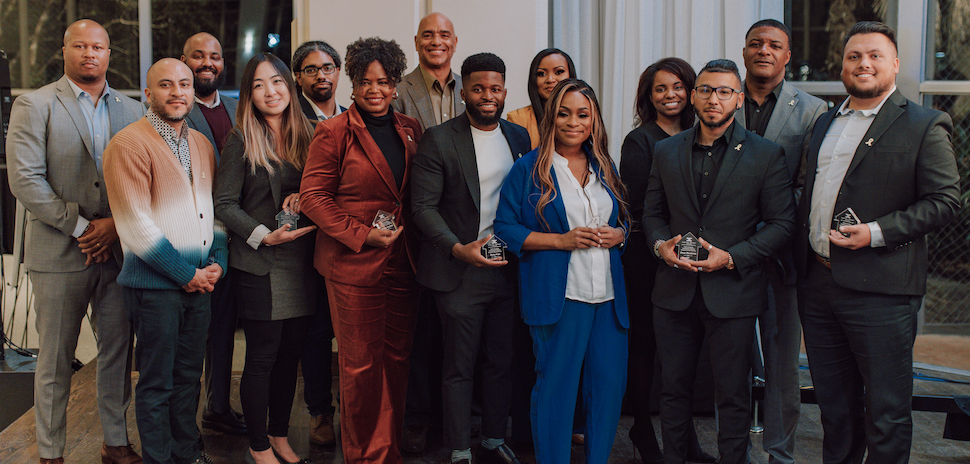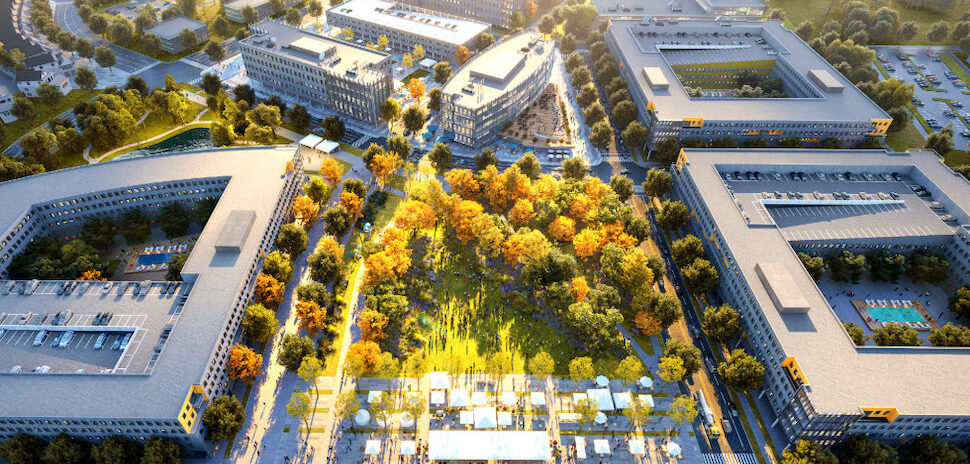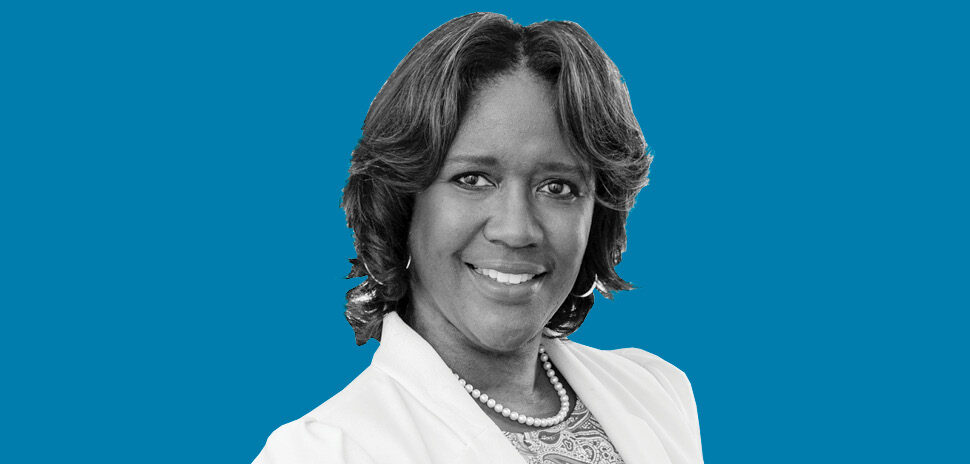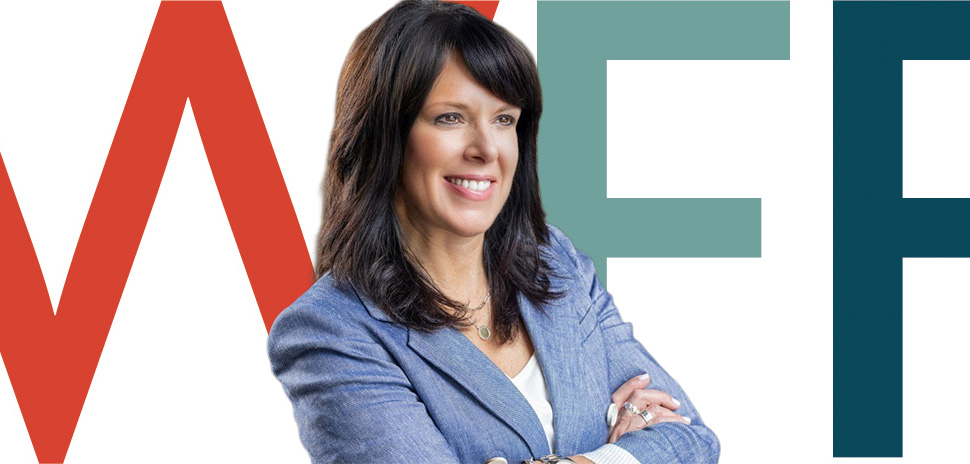A program aimed at advancing the careers of Dallas-area developers of color reached a turning point Friday night, by graduating its first 15 developers—who took their turns pitching an affordable housing concept in the Dallas region.
The Equitable Development Initiative from Capital Impact Partners has been rolled out in three other cities—Detroit, metro Washington, D.C., and the San Francisco Bay Area—training more than 200 developers of color since 2018. Back in April, it landed in Dallas with funding support from JPMorgan Chase & Co. and Charles Schwab Bank.
“Systemic barriers have prevented developers of color from accessing capital and achieving their potential in helping communities across the country,” Ellis Carr, president and CEO of Capital Impact Partners and CDC Small Business Finance, said in a statement of the April launch.
“There are so many talented developers of color who are ready to work with local neighborhoods to create housing solutions that uplift and support communities,” Carr added in April. As in the program’s first three cities, he said, “our EDI program will begin to build a more equitable real estate development ecosystem here in Dallas.”
Friday event at Fair Park’s Texas Discovery Gardens
Friday’s event was held at Texas Discovery Gardens in Fair Park, where the 15 developers pitched or presented real estate projects that include affordable housing, with a goal of revitalizing disinvested communities in the Dallas area.
According to Capital Impact, affordable housing is very much in need in the region, “where there is a 20,000-unit shortage and communities of color in Dallas are being pushed farther out of the city due to gentrification and rising home costs.”
One graduate is finishing 26 affordable homes this year
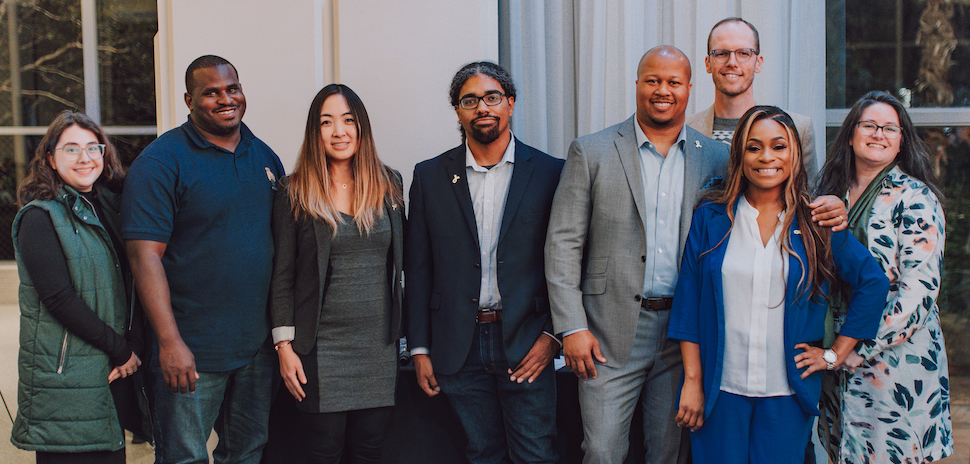
2nd from right: Queenetra Andrews, CEO of Andrews Dev. and Holdings, with her capstone team, program advisor and architectural firm at Capital Impact Partners’ Equitable Development Initiative event Nov 18 2022. [Photo: Capital Impact Partners]
Dallas’ Queenetra Andrews is one of the 15 cohort members who graduated from the program Friday. Andrews didn’t complete college, and says she educated herself about real estate.
Now she is CEO and owner of Andrews Development & Holdings, and her company is on its way to putting the final touches on 26 affordable homes by the end of December, according to Axios Dallas
“I was inspired by my own past to not only break a generational curse in my own family, but to help other low-income families in urban communities obtain safe, affordable housing, so they can focus their resources more on raising future leaders and entrepreneurs,” Andrews said in a statement.
Seagoville graduate is working on Grand Prairie townhomes
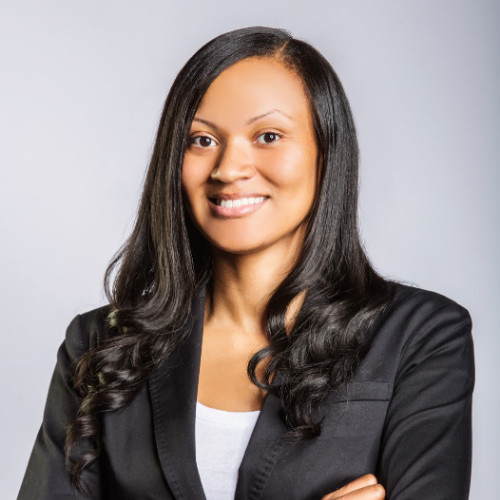
Sametrius Ruben
Another graduate, Sametrius Ruben of Seagoville, says she got her real estate license years ago while serving in the Texas Army National Guard—and pregnant with her twins. On Friday, she shared progress on an 8-unit townhome project she’s working on in Grand Prairie, Axios Dallas reported.
“I’m very passionate about being able to become a developer and build more affordable homes for not just everyday people but for my veteran family and friends,” Ruben, a realtor with Keller Williams Realty, said in a statement. “I would love the opportunity to work with more experienced professionals and be able to grow my community.”
Nicole Raphiel of DeSoto, a DeSoto Council Member and Community Development Project Manager for St. Philip’s School and Community Center.
‘Developments we inspire and fund’
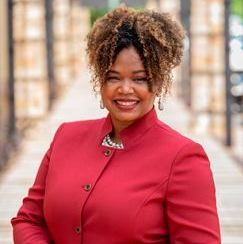
Nicole Raphiel
One participant at Friday’s event was Nicole Raphiel, a DeSoto Council Member and Community Development Project Manager for St. Philip’s School and Community Center.
“The retail development in DeSoto is as stagnant as what’s in the South Dallas/Fair Park area,” Raphiel said in the statement.
“The differences are vast,” she added. “However, what is common is the dominant ethnicity of the people. I firmly believe that we need to stop waiting for ‘them’ to come, and instead take control of our communities with developments we inspire and fund.”
Different zip codes, different features
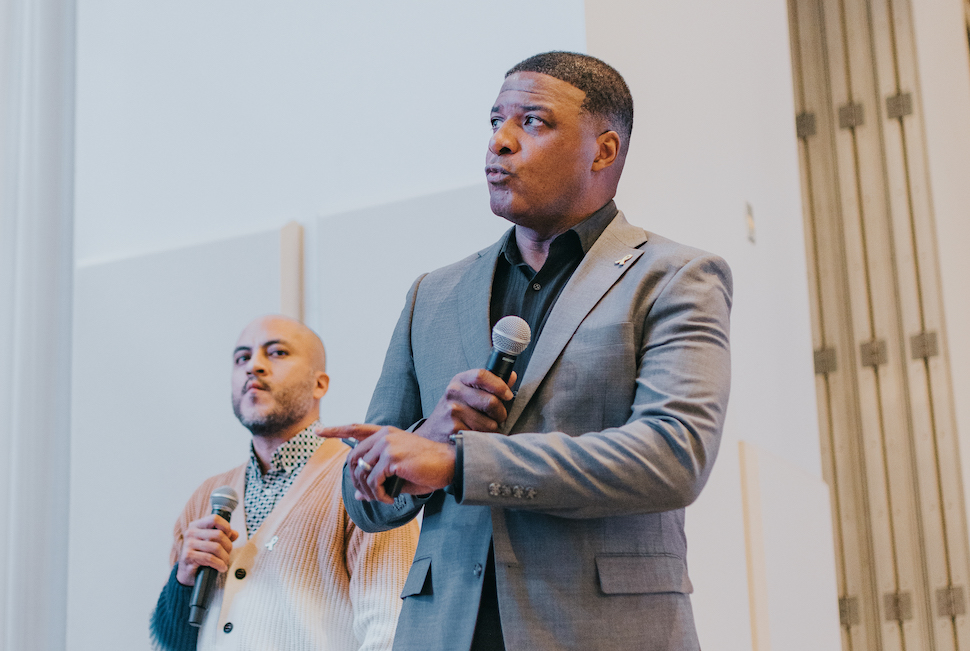
Joe Dillard III at the Capital Impact Partners Equitable Development Initiative event Nov. 18 2022. [Photo: Capital Impact Partners]
One resident of DeSoto who was born and raised in Oak Cliff agrees with Raphiel’s sentiment is Joe Dillard III, one of the initiative’s Friday graduates.
“I was always curious as to why certain zip codes lacked similar features as others and learned later in life that the key to addressing my curiosities was to address them via real estate development,” Dillard said. “However, I could never access the financing or requisite knowledge to deliver the quality of products I sought to develop.”
To help address both issues, the program offered participants broad-based training in everything from project budgeting to real estate finance, project and contractor management, legal services, and community engagement. They’ve also been trained in local mentorship, network building, and pathways to access funding.
To date, Capital Impact says it has invested over $88 million in affordable housing, education, and more, and part of that has been in existing investments “across Texas.” It says it will be expanding its Texas investments to spur community and economic development, “based on identified needs in underestimated communities.”
For more on the Capital Impact program, see our April story here.
![]()
Get on the list.
Dallas Innovates, every day.
Sign up to keep your eye on what’s new and next in Dallas-Fort Worth, every day.

